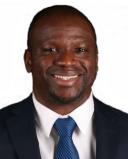ADHD
Increasing Reports of ADHD: Do Higher Expectations In Academics Play A Role?
The Implications Of Increased Diagnosis Of ADHD In Students.
Posted February 7, 2011
According to a report released by the Center for disease control and prevention, the number of reported cases of Attention Deficit Hyperactivity Disorder (ADHD) with students ages 4 through 17, increased from 7.8 percent to 9.5 percent between 2003 and 2007. There are a number of ways people can interpret this report, the most common being that most clinicians are misdiagnosing their children and teen aged clients with attention deficit hyperactivity disorder. Another interpretation, is that parents are becoming more educated and involved in the education of their children. As a result most parents and teachers are discovering that the one size fits all style of formal education does not work for every student.
I learned of this report during my recent interview with author and parent advocate, Karen Lowry. According Lowry, who also happens to be a pediatric nurse, there are three primary reasons for this increase in reported cases of ADHD.
1. Middle school and high school students have multiple teachers. (This may be overwhelming to a child struggling with ADHD).
2. During the past decade there has been an ever increasing demand for organizational effectiveness in schools, (a primary impairment with people who struggle with ADHD.)
3. Recent changes in our laws have required schools to be held more accountable for making sure that no child is left behind in their necessary studies.
Karen argues that all these changes are a result of more parents having increased expectations in the academic achievements of their children. As a result of these increased academic expectations, more learning disabilities are being observed and reported by parents. As a parent advocate, Karen advocates on the behalf of parents to get educators to tailor their teaching styles to the learning styles and needs of children with ADHD.
By now most of my readers know that I am a big supporter of teachers, so what I wrote earlier in this post about the ineffectiveness of the one size fits all approach to formal education, is actually a positive. Through my work with teens, I have been introduced to teachers who have recently shared with me their practice of differential and individualized teaching. Differential teaching involves tailoring a curriculum to fit the special needs of any student, while individualized teaching emphasizes a teacher adjusting his or her delivery of information to each student in the classroom.
Nevertheless there are always students who (through the fault of no one) manage to fall through the cracks, and that's where a parent advocate like Karen Lowry comes in. Karen is a member of the non profit Organization, Children and Adults with ADHD, (CHADD). CHADD provides important information to individuals and families affected by ADHD, and it was through this organization that Karen became certified as a parent advocate for parents with children who struggle with symptoms of ADHD. According to Karen, she enables parents to find their voice, and through persistence she is able to have meetings scheduled with teachers and principles to address the specific needs of the children she represents.
Most children who struggle with learning disabilities usually will experience feelings of being overwhelmed, because they find themselves caught in between parents with busy schedules and teachers with busy classrooms. Parent advocates like Karen are definitely a positive sign of the times, because their involvement in the lives of children with special needs, helps to ease their feelings of being overwhelmed and increase their chances of success.



